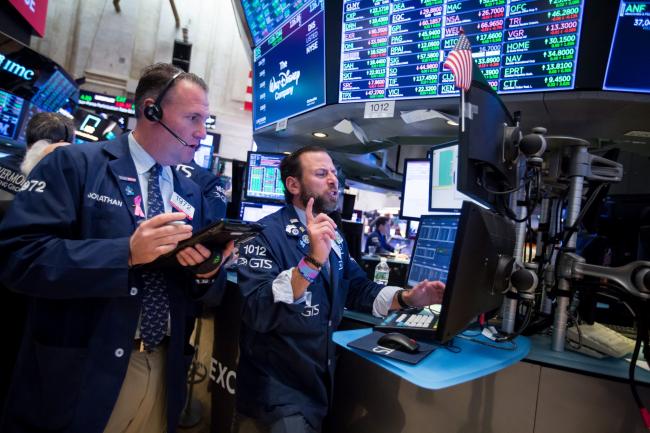(Bloomberg) -- For once, the consensus came true. Markets got it right and no violent repricing in equities was needed. A divisive episode of U.S. politics came and went, and investors are exactly where they were before. The question for bulls: can it actually last?
“This was our base case,” said Ben Phillips, chief investment officer of EventShares, which oversees the U.S. Policy Alpha ETF. “As far as markets are concerned, it is actually a decent outcome.”
Perhaps. Bulls can celebrate gridlock, at least, a moderate positive in cycles past. They can be encouraged that something other than a Republican sweep is being taken in stride by futures. The economy is intact. And nothing that happened Tuesday will alter President Donald Trump’s big gift to bulls, a tax cut that made 2018 one of the best years for profit growth ever recorded.
“I know it may be a bit of a letdown from a news perspective, but most of us on the investment side are happy to see a bit of boring and predictable politics this year,” said Max Gokhman, head of asset allocation for Pacific Life Fund Advisors.
Still, questions remain. How long can any peace persist in a market that before this week spent a month going up and down 2 percent a day? The election is over, one type of uncertainty is subdued. But for equity bulls who watched as their favorite stocks got pummeled by forces that went beyond politics in October, it’s an uneasy truce.
“This issue, thank god, is behind us,” said Donald Selkin, chief market strategist at Newbridge Securities, said in an interview. “But the other issues are out there."
Futures on the S&P 500 were up about 5 points as of 11:02 p.m. in New York, shortly after Bloomberg News said Democrats would win the House but not the Senate. It was a stark contrast to last week, when equities finished their worst monthly plunge since 2011.
That’s the issue for investors, though -- that an end to electoral strife doesn’t ensure an end to everything else that tore at investor nerves last month, when $3 trillion was erased from shares. The Federal Reserve is still raising rates, Trump’s trade war shows no sign of easing, and little will arrest the gnawing sense the economy’s best days are behind it.
Add to that a more abstract threat -- “tweet risk,” it’s been called -- the possibility that a recharged opposition will turn the screw on Trump’s vulnerabilities, provoking the president into an even more warlike public posture than he already presents. It’s an unsavory thought for anyone who traded through the president’s pre- and post-market pronouncements as his tariff threats ramped up.
On election night, most investors were happy to put those concerns aside. The economy may be peaking, but for now it’s humming along at a 3 percent clip. Earnings growth will slow, but earnings aren’t: the estimate is for 10 percent gains in each of the next two years. How bad could things be, when after falling 9 percent in October, the Nasdaq 100 is still up 9 percent on the year?
Even more: in the past 18 midterm elections, stocks have gained from the October lows through the end of the year every single time, according to LPL Research.
One optimistic spin holds that October wasn’t an isolated event that was separate from politics. It was politics, the theory goes -- tonight’s election outcome pricing itself in a month in advance. Under that interpretation, bulls can take solace: the Dow Jones Industrial Average’s 2000-point correction was the price stocks had to pay for a Republican setback.
At Apriem Advisors in Irvine, California, chief investment officer Benjamin Lau lowered cash to 15 percent from 20 percent just before this election, buying financial and industrial shares to take advantage of cheaper valuations.
“Generally I don’t know if the outcome is going to affect the long term view of the economy,” Lau said Tuesday night. “We’re more concerned just about uncertainty and once it’s passed, the market is going to do better.
